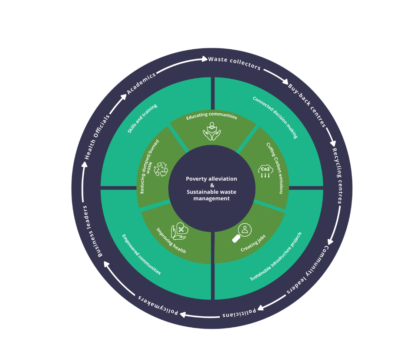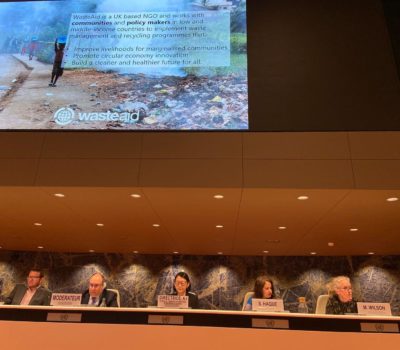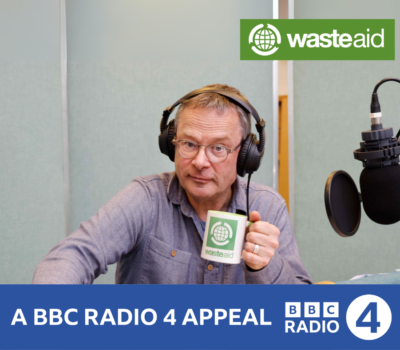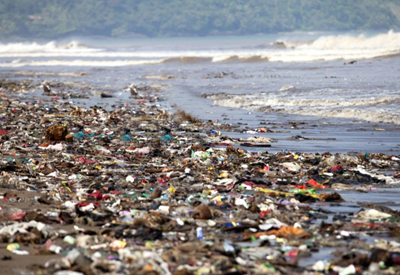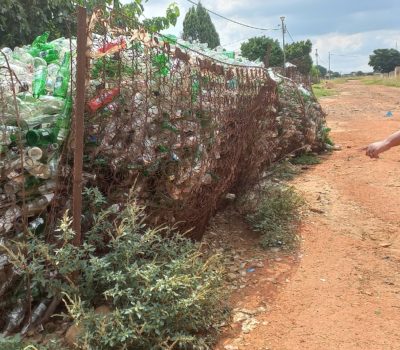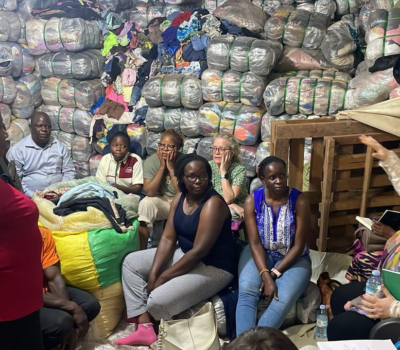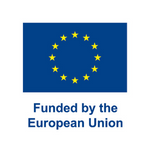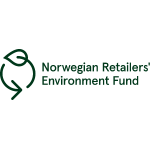From Business-as-usual to a Circular Economy: raising ambition for climate action
Thought Pieces
Author: Guest Author
Published: 27 June 2022
In 2015 at the COP21, almost all nations signed the Paris Agreement, an international treaty that commits us to jointly combat global warming. This treaty was welcomed as a breakthrough and brought with it hope that the agreed temperature goal to limit the increase of global warming to well below 2 degree Celsius will allow us, and all ecosystems, to co-exist on our planet in worthwhile living conditions and within the known temperature variations that prevailed in Earth’s history.
The issues arising from “Business-as-usual and a linear economy”
During the last decades, numerous researchers and publications have emphasized that without the needed switch from a linear to a circular economy, it may be impossible to establish sustainable lifestyles. Likewise, we may fail to halt global warming as an ongoing and threatening process caused by human action.
Urbanization, population growth, economic development, industrialization and lifestyle changes are all continuously advancing processes. All of these factors trigger steadily increasing resource consumption and waste generation and related environmental impacts. Moreover, our existing business practices with prevailing, short-term-oriented economic goals hinder our change towards more sustainable production and consumption.
For instance, design and life span of common products do not aim at long-lasting and reusable products as envisioned within the context of a circular economy, but foremost target short- to mid-term replacement to secure market share and business operations. Sooner or later, this causes additional waste generation.
The World Bank estimates the current global domestic waste generation to be around 2 Billion tonnes, increasing to 3.4 Billion tonnes in 2050 if we do not introduce the needed changes. In this context it is relevant that the majority of collected waste is organic in nature, often more than 50%.
This becomes especially visible in fast growing urban areas where biowaste management within ‘the backyard’ is no longer possible for most residents, and needs sophisticated logistics for collection, treatment and disposal. As much as “waste avoidance, reuse and recycling” are the desirable alternatives to disposal, they remain theory in many low- and middle countries where waste collection alone absorbs a major part of available resources. In addition, formal operations are often hindered by uncoordinated waste recovery activities performed by the informal sector. Moreover, expertise and capacities to enhance waste management systems are low in most municipalities in developing countries.
Consequently, urban areas develop as centers of resources consumption and Greenhouse Gas (GHG) emissions and emerge as ‘hot spots’ responsible for increasing climate impacts. In fact, cities generate around 70% of all anthropogenic GHG emissions at present.
How can a circular economy help raise ambitions of climate action?
A circular economy as a means to support climate action is becoming increasingly important, as the urgency to raise ambition for climate mitigation grows. While current climate action pledges are not sufficient to meet agreed goals and targets, the concept of a circular economy could help to bridge this ambition gap.
This concept thereby goes beyond the idea of shifting energy supply from fossil fuels to renewable energy, in fact: Virtually all product cycles need to become more efficient and closed in order to reach climate neutrality.
This restructuring of our economy would offer considerable advantages beyond climate mitigation: it would lessen the pressure on natural resources, create jobs through innovation, assist to protect biodiversity and increase urban quality of life as well. Even though there are ample sector- and product-specific studies that quantify the mitigation potential of circular economy measures, little has been published on their potential to help raise the ambition level of Nationally Determined Contributions that have to be prepared and submitted by all countries as regulated with the Paris Agreement every 5 years.
In any way, a transformation is also needed at municipal level from designing services in a “post-consumer manner” towards interventions that address the entire value chain from ‘raw material extraction to product design, distribution and use’ by implementing the so-called ‘cradle-to-cradle concept’ as introduced be Braungart & Mc Donough in 1990.
Under the Paris Agreement, the objective of limiting global warming to well below 2°C by the end of the 21st century became the benchmark for global climate mitigation ambition. Nationally Determined Contributions represent the parties’ national climate goals for mitigation and adaptation and are subject to regular review and update, with the aim of steadily increasing the ambition level in each cycle. Literature such as the Circularity Gap report underline the need for circular economy action to close the gap between current climate pledges and needed ambition. The huge potential of circular economy is obvious, since at present only around 9% of all resources we use could be accounted ‘as circular’.
To increase global efforts for the needed switch from a linear to a circular economy, it is important to fully understand the importance and contributions of individual sectors for accomplishing development and climate goals, how sectoral policies and measures can be prioritized, and how the ambition level and contributions can be raised over time.
To conclude, the concept of a circular economy is in the unique position to generate numerous benefits for resources management, for sustainable development and for climate mitigation. However, this can only be realized with effective coordination to connect the various sectors on the ground in order to realize additional mitigation potentials and co-benefits.
This again points towards the relevance to build capacity among local actors and especially city governments, to better understand and integrate a circular economy into their development plans and operations, and also to better integrate towns and cities into the future planning and design of measures that could raise ambition for Nationally Determined Contributions.
About the Author
Dr. Johannes Paul is geologist and environmental engineer with 30 years professional experience in water and waste management. He has worked for various public, private sector and academic institutions in Germany, EU, Canada and Asia from 1988 on. Since July 2017 he acts on behalf of GIZ as senior advisor for the global sector project “Concepts for sustainable Waste Management and Circular Economy” at the Division of Climate, Environment and Infrastructure in Eschborn, Germany. Focus of his work are various research and development projects that relate to environmental policy, circular economy and integrated waste management. Current activities address urban waste management, climate mitigation in the waste sector, marine pollution through plastic and packaging waste, related SDGs and capacity building for waste management in low- and middle-income countries. In his private capacity he supports the Working Group Climate Change & Waste Management of the International Solid Waste Association (ISWA), since 2019 as elected Vice-Chair of the working group.
From 2000 until 2017 Dr. Paul has lived and worked in the Philippines and Sri Lanka with various short-term assignments in Bangladesh, Indonesia, India and Thailand. During this time, he also acted from 2004-2012 as team leader of the GIZ waste management program in the Philippines. Relevant outcomes of this program were a National Strategy on Solid Waste Management (SWM), the development of a waste management course for graduate students and professionals and innovative best practices for municipal solid waste management in the Philippines. From 2014 until June 2017 he supported the International Water Management Institute in Colombo, Sri Lanka as senior researcher with focus on waste management and resources recovery in South Asia. In his ex-officio capacity Dr. Paul acted as lecturer and co-supervisor of graduate students for several universities in Germany, The Netherlands, Philippines and Sri Lanka. Dr. Paul has authored / co-authored more than 100 publications for scientific journals and international conferences, most of them related to waste and water management (www.researchgate.net).

